Turkey’s unique cultural diversity, which stretches back thousands of years, has attracted a massive upsurge in global interest in recent years, helped by the country’s own flourishing TV and movie industry. With such an extraordinary range of natural and architectural wonders, it is unsurprising to discover that Turkey is also becoming an increasingly popular filming location for Hollywood producers.
The fiction writers of the past led the way in looking to Turkey’s endlessly fascinating history and landscapes for inspiration and today’s novelists continue to find new and interesting ways of capturing the spirit of this unforgettable country. Here are some of our own favorite novels with a distinctly Turkish flair, ranging from medieval fantasy and historic detective series to spy stories set in the Cold War era.
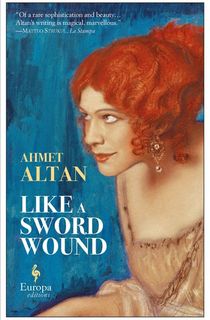
Like a Sword Wound
The first in a planned quartet of books, Ahmet Altan’s “engrossing novel of obsessive love and oppressive tyranny” (Publishers Weekly) traces the decline and fall of the Ottoman Empire from the late 19th century onwards. The narrator of Ahmet Altan’s epic historical novel is Osman, a middle-aged man living in present-day Istanbul. He is haunted by the spirits of his ancestors who are finally free to relate their experiences of living through the final repressive days of the Ottoman regime.
The award-winning Turkish author, who was himself imprisoned as a political dissident during the 2010s, has created a cast of vividly drawn characters for this epic historical novel. These include a young Ottoman army officer who becomes embroiled in the struggle for power; the son of the Sultan’s personal doctor whose Westernized outlook brings him into conflict with his own family; and a beautiful young Turkish woman whose liberated attitude towards men scandalizes and tantalizes in equal measure.
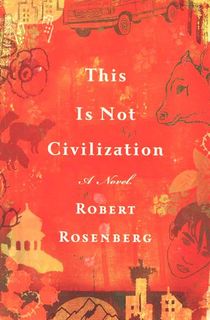
This Is Not Civilization
Loosely based on the author’s own experiences, Jeff Hartig is the central character of Robert Rosenberg’s “ambitious and big-hearted” debut novel (Kirkus Reviews). Having previously volunteered as an aid worker in Kyrgyzstan and on a Native American reservation in Arizona, Hartig is now living and working as a refugee resettlement officer in Istanbul. Here, he unexpectedly finds himself playing host to three disparate characters from his past, all of whom believe will find in him a solution to their current problems. The unlikely trio and their reluctant host are just learning to co-exist with each other when a disastrous earthquake strikes.
Rosenberg proves equally adept in dealing with the comedic and tragic elements of his elaborately constructed plot, winning critical acclaim for his “vibrant mix of the serious and the absurd” (Publishers Weekly).
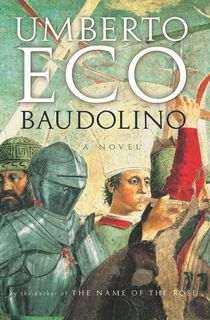
Baudolino
Best known for his internationally bestselling The Name of the Rose, Italian novelist Umberto Eco returns to the Middle Ages in this whimsical and captivating tale that combines history, myth and fantasy.
Set in 1204 against the backdrop of the real-life siege of Constantinople (modern-day Istanbul) by the knights of the Fourth Crusade, the enigmatic Baudolino saves the lives of two men from the clutches of the invading marauders. He then proceeds to regale them with his own remarkable life story culminating in a journey to the long-lost mystical kingdom of Prester John. But how much of the self-confessed liar’s account is really true?
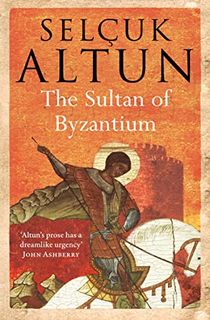
The Sultan of Byzantium
Emperor Constantine XI, the last ruler of the great Byzantine Empire, is generally believed to have been killed during the fall of Constantinople in 1453. Some 500 years later, a young Turkish professor is contacted by three members of a secret sect with the extraordinary news that Constantine XI instead miraculously escaped and, as the descendant of the so-called Immortal Emperor, the Professor is the modern-day heir to his fortune. As with all good news, there is a catch. The Professor is required to discover the solution to a centuries-old riddle that takes him to the far reaches of the former Byzantine Empire and beyond before he can finally take possession of his fortune.
Turkish author Selcuk Altun’s intricate plot cleverly interweaves an intriguing modern adventure story with an evocative portrayal of the region’s past glory days in this “skilfully constructed tribute to Byzantium” (World Literature Today).
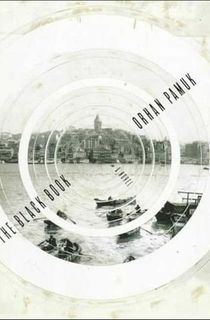
The Black Book
Orhan Pamuk is ranked amongst the most successful of modern Turkish authors and was awarded the Nobel Prize for Literature in 2006. Described as Pamuk’s “masterpiece” by the Times Literary Supplement, this unconventional mystery story from 1990 has been translated into English on more than one occasion, most notably, in 2006 by Maureen Freely.
An Istanbul lawyer named Gilip wakes up one morning to find his wife gone. Soon he discovers that her ex-husband, a newspaper columnist, has also vanished. In searching for clues relating to the pair’s disappearance, Gilip assumes the identity of the popular journalist, but, as the mystery deepens, he becomes ever more consumed by his alter ego’s personality.
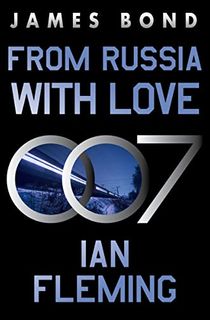
From Russia with Love
Described as “the finest book in the Bond franchise” by The Independent, this is the fifth novel to feature Ian Fleming’s iconic British secret agent. Much of its action takes place in Istanbul and, later, on board the Orient Express. Set in the midst of the Cold War, the Russian intelligence service unit, SMERSH, is intent on assassinating the British Secret Service’s most feared agent. James Bond is lured to Turkey, where he meets Colonel Tatiana Romanova, an attractive young Soviet spy who reportedly wants to defect to the West.
Bond’s misogynistic attitude towards women may appear outdated to modern readers, but Fleming remains the undisputed master of the spy story, creating an intricate plot full of action, double dealing and intrigue.
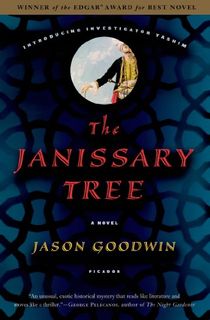
The Janissary Tree
The winner of the coveted Edgar Award for Best Novel in 2007, The Janissary Tree is the first of Jason Goodwin’s popular historical thrillers set in 19th-century Istanbul. It also introduces us for the first time to the highly original character of Yashim, the eunuch turned detective, who plays a central role in the series. When a concubine in the palace harem is found strangled, Yashim sets out to investigate her murder, only to uncover a series of dramatic events relating to an unsuccessful rebellion that led to the downfall of the historic Janissary elite military force 10 years prior.
Goodwin has also published a critically acclaimed history of the Ottoman Empire and in The Janissary Tree uses all his considerable knowledge of the region’s past to bring this entertaining and exotic tale of intrigue vividly to life.
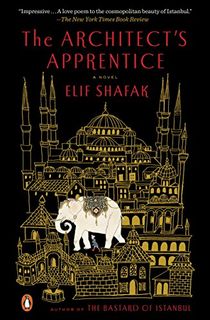
The Architect's Apprentice
Generally regarded as Turkey’s foremost modern female novelist, Elif Shafak’s The Architect’s Apprentice won praise for its “vigorous evocation of the Ottoman Empire at the height of its power” (Sunday Times).
A penniless young stowaway causes a stir when he arrives in 16th-century Istanbul, accompanied only by a rare white elephant. Chota, the elephant, ends up in the palace menagerie where the boy, Javan, works as an animal tamer until the Ottoman Empire’s chief architect takes him under his wing. From there, Shafak’s epic multi-layered novel takes us on an extraordinary journey through nearly a century of Ottoman history, as she weaves a magical tale of adventure, intrigue and romance.

The Towers of Trebizond
First published in 1956, Rose Macaulay’s classic novel is narrated by Laurie, who sets off on an expedition to Turkey with her eccentric aunt and an Anglican priest intent on establishing a Christian mission. As they travel from Istanbul to the historic coastal city of Trebizond, the unlikely British trio encounter an intriguing selection of quirky fictional characters as well as the real-life US evangelist, Billy Graham.
Packed full of lively descriptions about Turkish culture, history and geography, this “brilliantly witty and captivatingly charming” novel (New York Times) effortlessly combines moments of high comedy with thought-provoking observations about more heavyweight topics like feminism and faith.





